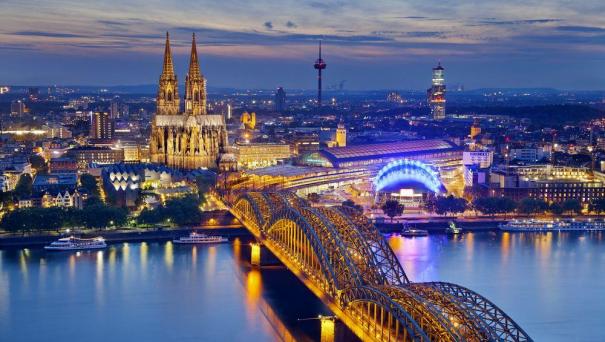About Cologne
Cologne, a 1,000-year-old city spanning the Rhine River in western Germany, is the region’s cultural hub. A landmark of High Gothic architecture set amid reconstructed old town, the twin-spired Cologne Cathedral is also known for its gilded medieval reliquary and sweeping river views. The adjacent Museum Ludwig showcases 10th-century art, including many masterpieces by Picasso, and the Romano-Germanic Museum houses Roman antiquities. Cologne was founded and established in Ubii territory in the first century AD as the Roman Colonia Claudia Ara Agrippinensium, from which it gets its name. Cologne is one of the warmest cities in Germany. It has a temperate–oceanic climate with relatively mild winters and warm summers. Cologne is regularly affected by flooding from the Rhine and is considered the most flood-prone European city. Cologne had 4.31 million overnight stays booked and 1.38 million arrivals in 2008. The city also has the most pubs per capita in Germany. The city has 70 clubs, "countless" bars, and restaurants. Cologne has several museums, several orchestras, is famous for electonic music, has a literature festival, and carnival season. It is also famous for its beer.
